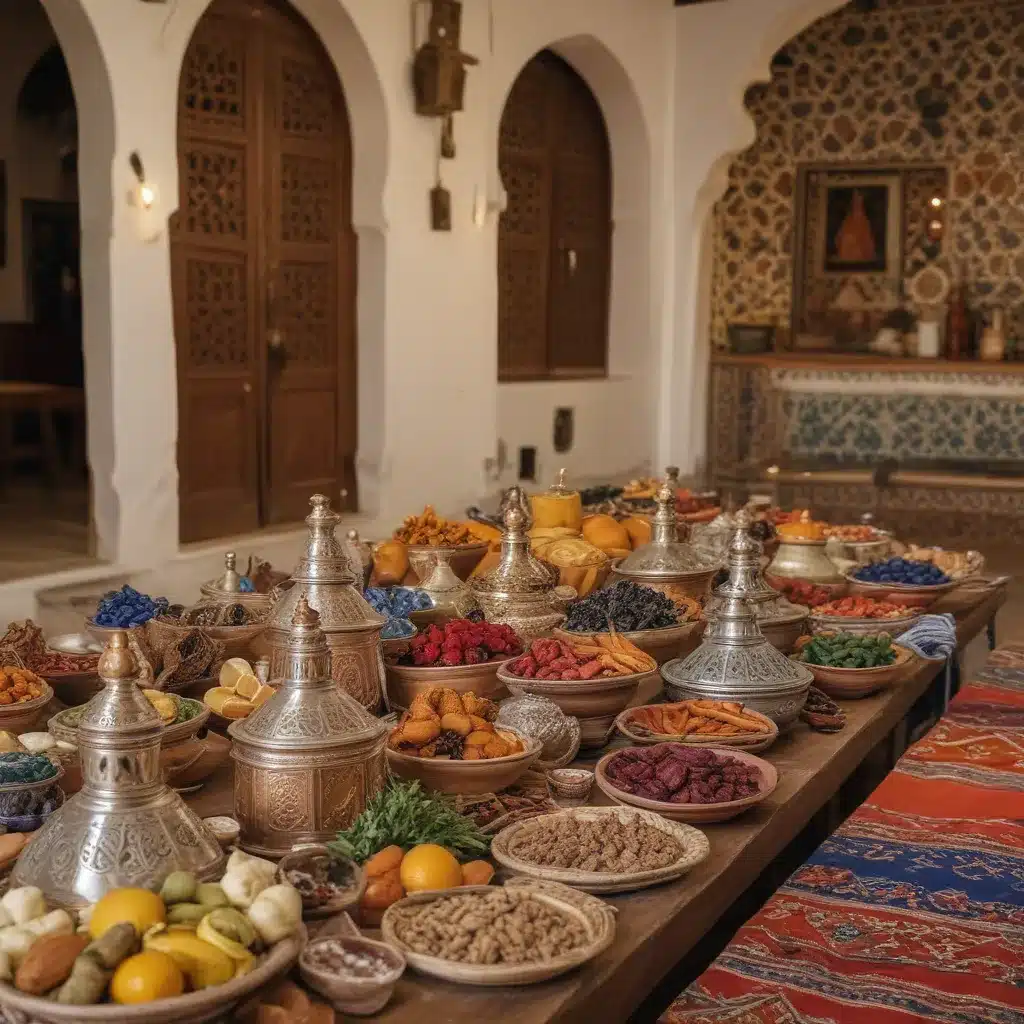
Discovering the Essence of Moroccan Cuisine
As I step through the ornate doorway of El Bahia, the vibrant colors and intricate patterns that adorn the walls immediately transport me to the bustling medinas of Marrakech. The rich aroma of spices and sizzling tagines fills the air, beckoning me to venture deeper into this oasis of Moroccan tradition amidst the concrete jungle of New York City.
El Bahia, named after the iconic Bahia Palace in Marrakech, is more than just a restaurant – it’s a culinary journey that celebrates the essence of Moroccan culture. As I settle into a plush velvet banquette, I can’t help but feel a sense of anticipation, knowing that the flavors and experiences that await me will be nothing short of extraordinary.
Diving into the Culinary Heritage of Morocco
The menu at El Bahia reads like a love letter to the diverse regions of Morocco, each dish a testament to the country’s rich gastronomic heritage. From the fragrant lamb tagine with prunes and almonds to the vibrant vegetable couscous, every item on the menu tells a story of tradition and innovation.
One dish that immediately catches my eye is the Bahia Palace-inspired chicken pastilla, a flaky pastry filled with tender chicken, eggs, and a delicate blend of spices. As I take the first bite, the flavors explode on my palate – the savory chicken, the sweetness of the cinnamon, the crunch of the toasted almonds, all coming together in a symphony of culinary delight.
But the true star of the show, in my opinion, is the intricate zellij tiles that adorn the walls and floors of the restaurant. These hand-chiseled and meticulously assembled mosaics are a testament to the artistry and craftsmanship that is deeply rooted in Moroccan culture. As I trace the intricate patterns with my eyes, I can’t help but wonder about the skilled hands that brought these stunning designs to life.
Immersing in the Vibrant Atmosphere
As I sip on a refreshing mint tea, the sounds and sights of El Bahia transport me to the bustling streets of Marrakech. The gentle strumming of the oud, the vibrant tapestries, and the aroma of spices all combine to create an atmosphere that is both calming and invigorating.
I find myself drawn to the ornate arched doorways and the intricate plaster carvings that adorn the walls, each one a unique piece of Moroccan artistry. The soft lighting and the serene courtyard garden create a sense of tranquility, a welcome respite from the hustle and bustle of the city outside.
Discovering the Rich History of Moroccan Traditions
As I delve deeper into the experience at El Bahia, I can’t help but be captivated by the rich history and cultural significance that is woven into every aspect of the restaurant. The Bahia Palace, which serves as the inspiration for this culinary oasis, is a stunning example of Moroccan architecture and design, a testament to the country’s long-standing tradition of artistic expression.
The palace was commissioned in the late 19th century by Si Moussa, the Grand Vizier of Sultan Moulay Hassan I, as a luxurious residence for himself and his family. The design, which blends traditional Moroccan elements with French influences, is a reflection of the country’s rich cultural heritage and the intricate interplay of its various influences.
As I delve into the history of the Bahia Palace, I can’t help but draw parallels to the experience I’m having at El Bahia. Just as the palace was a testament to the grandeur and opulence of Moroccan culture, this restaurant is a celebration of the country’s culinary traditions and the skillful artistry that goes into every dish.
Savoring the Flavors of Moroccan Hospitality
One of the things that truly sets El Bahia apart is the warm and inviting hospitality that permeates every aspect of the dining experience. From the moment I step through the door, I’m greeted with a genuine smile and a sincere desire to make me feel at home.
The servers, who are well-versed in the intricacies of Moroccan cuisine, take the time to guide me through the menu, offering recommendations and sharing insights into the cultural significance of each dish. Their enthusiasm and passion for the food are infectious, and I find myself eagerly anticipating each course.
As I savor the flavors of the lamb tagine, the layers of spices and the tender, fall-off-the-bone meat transport me to the bustling souks of Fez. The couscous, with its fluffy texture and vibrant vegetables, reminds me of the communal meals shared by families in the heart of the Sahara.
But it’s not just the food that leaves a lasting impression. The attentive yet unobtrusive service, the beautifully curated ambiance, and the overall sense of hospitality all contribute to an experience that is truly unforgettable.
Embracing the Art of Moroccan Hospitality
As I savor the final sips of my mint tea, I can’t help but feel a deep appreciation for the art of Moroccan hospitality. In a world that often moves at a frantic pace, El Bahia offers a respite from the chaos, inviting visitors to slow down, savor the moment, and immerse themselves in the rich cultural traditions of Morocco.
Whether it’s the intricate zellij tiles, the soulful melodies of the oud, or the warm and welcoming staff, every aspect of the El Bahia experience celebrates the essence of Moroccan culture. It’s a place where the boundaries between food, art, and hospitality blur, creating a truly holistic and unforgettable dining experience.
As I reluctantly bid farewell to this oasis of Moroccan tradition, I know that I will carry the memories of my time at El Bahia with me for years to come. It’s a testament to the power of cultural exchange, a reminder that the richness of the world lies in its diversity, and a testament to the universal language of good food and warm hospitality.


